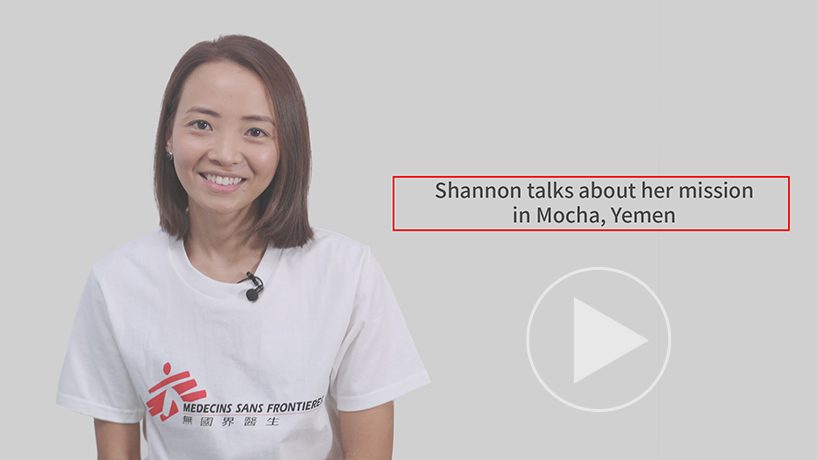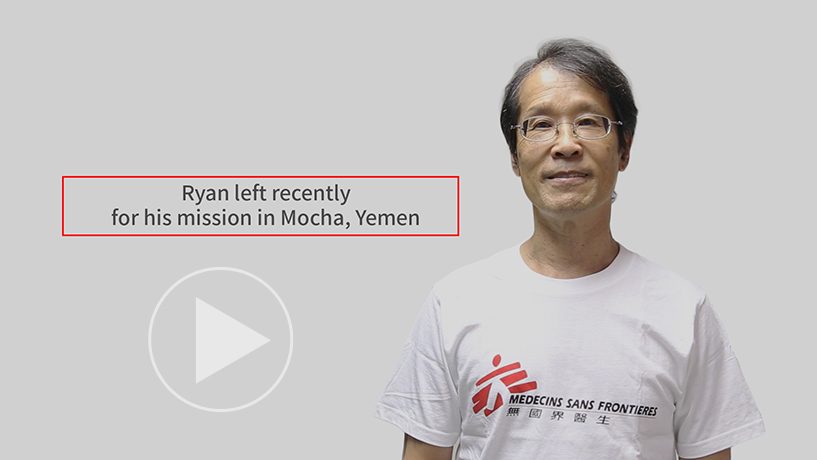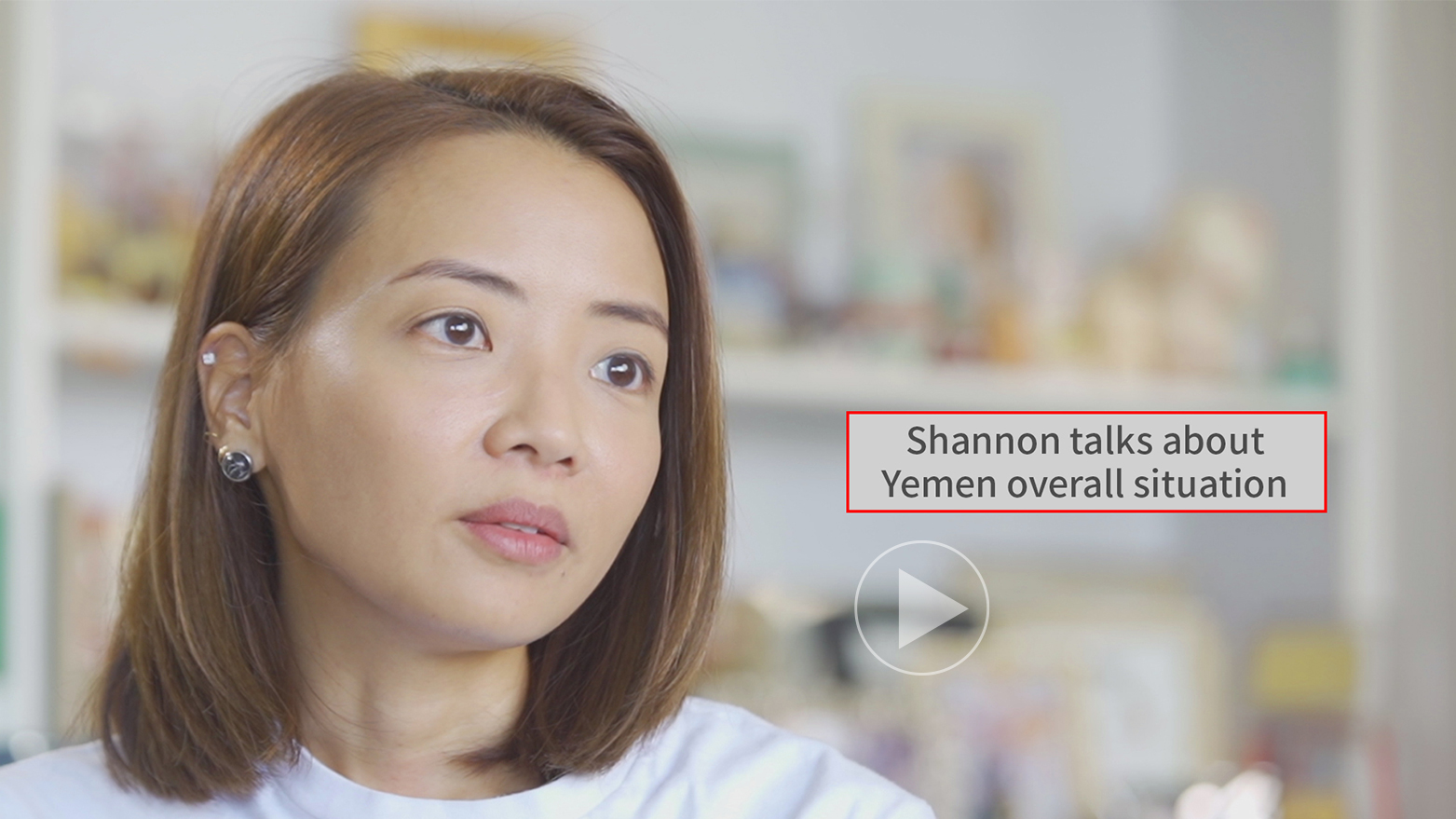The brutal armed conflict that has started since 2014 has, very occasionally, raised the Middle Eastern country of Yemen into the international news headlines. We sometimes hear calls for regional powers or the wider international community to exert influence for a truce. There had been hopes for a re-established central government to put an end to the chaos in the country. However, despite the enormous and tragic loss of lives, the collapse of healthcare system and the large-scale displacement resulting from the 6-year conflict, news reports on the humanitarian crisis in Yemen are minimal. We can hardly hear the voice of the Yemenis themselves.
Through the testimonies from Hong Kong surgeons who have worked in Yemen, patients and MSF’s Yemeni staff, we hope the voice from Yemen, a country of ongoing conflicts and struggle, can be heard.
Dr. Ryan Ko is currently a surgeon at Mocha field hospital
Mocha Project is Ryan's 15th mission with MSF and it was his 4th trip to Yemen. Since joining MSF in 2008, Ryan has gone to missions in South Sudan, Iraq, Liberia, Haiti and so on. In this mission, Ryan is responsible for performing operations, particularly for people who are wounded in the recurring conflicts.
YEMEN CONTEXT
MSF'S PROJECTS IN YEMEN
Severe conflict puts civilians in danger
The United Nations has estimated that more than 230,000 people have died as a result of this conflict in Yemen1. Up to November 2020, there had been more than 22,000 airstrikes in the country, including attacks on medical facilities. Civilians were injured or lost their lives in random and indiscriminate attacks, through gunfire, bombings and landmine explosions, despite the fact that they were neither involved in conflicts nor living in war zones. There are frequent mass casualties incidents, one of which caused our medical team in the major city of Aden to treat up to 100 patients in 24 hours as a result of the fighting.
Many people have died because of “indirect consequences” of a war. Roadblocks and restriction of movements due to armed checkpoints, active conflicts themselves and expensive transport fees have forced pregnant women to deliver at home in poor hygiene conditions, making them more vulnerable to complications. Sick children cannot get treatment in time and malnutrition is common. Patients with chronic diseases, which can and should be brought under control, are in danger or lose their lives because of lack of treatment.
Medical system on the brink of breakdown
Living conditions in the country have dramatically deteriorated during the conflict. Outbreaks of diseases like cholera and diphtheria, which were previously almost absent in Yemen, stretched healthcare resources to the limit.
An unprecedented pandemic has pushed the healthcare system in Yemen to the edge of collapse. When developed countries are busy arranging vaccination campaigns for their people, Yemenis are still struggling for the lack of Personal Protective Equipment (PPE), tests and treatment centres. Many people with mild symptoms are not willing to visit the hospitals due to stigmatisation and fear of getting infected, and only turn to the hospitals when things become critical. A lot of medical staff have left the hospitals because of the high infection and death rates, intensifying staff shortages.
MSF in Yemen
MSF has worked in Yemen since 1986. In 2019, we had more than 2,500 staff members in Yemen, working at 12 hospitals and healthcare centres in areas including Hajjah, Aden, Khamer, Taiz and Hayden, and supporting more than 20 healthcare facilities in 12 governorates across the country.
Mocha is a historic port city on Yemen’s south western coast that borders the Red Sea. Renewed conflict on the frontlines to the South of Hudaydah Port on Yemen’s Red Sea Coast has been intense since 2018 and rising numbers of civilians need war-trauma surgery.
Given its proximity to the active war frontlines and absence of secondary health care services, MSF set up and run a surgical hospital in Mocha. It provides lifesaving emergency services and maternity care for civilians and armed personnel. It is the only functioning point of access to free lifesaving secondary healthcare services in the area and serves as a referral hospital for trauma patients. MSF also trained national doctors and nurses to ensure local sustainability of the project. The hospital currently includes Outpatient Department (OPD), Inpatient Department (IPD) including maternity, Mass Casualty Plan (MCP) triage area, Emergency Room (ER), Operating Theatre (OT), Intensive Care Unit (ICU), Laboratory etc.
Although we have expanded the scale of our intervention in the past five years, it is only a drop in the ocean of tremendous humanitarian needs. At the same time, MSF healthcare facilities have been attacked at least six times in the past five years, threatening the lives of our patients and staff.
MSF’s work is extremely difficult in Yemen. Medical teams can hardly reach a number of regions in the country because of safety or political and administrative blockages that stop us getting a clear picture of the overall medical and humanitarian situation. What our teams have seen or heard is probably just the tip of the iceberg.




